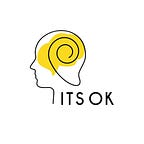That crying out of nowhere or anger outburst can be your emotional dysregulation. Read to learn more about it.
Have you ever seen someone feeling overly emotional over things, even when there is nothing to worry about, or someone getting too angry over small and trivial things?
Well, you might have noticed this behavior and thought that that person was too dramatic or rude to behave like that, but maybe it wasn’t their dramatic attitude but their inability to control their emotional reaction.
They might be dealing with emotional dysregulation, which involves a lack of control over one’s emotional state.
Emotional dysregulation is a brain-related symptom in which a person struggles to manage and regulate their emotions, like sadness, anger, or disappointment.
They may try to react normally to things but find it challenging to do so.
The most concerning thing about emotional dysregulation is that it is mostly a symptom of a mental health disorder.
Some of the mental health conditions that include emotional dysregulation as a symptom are post-traumatic stress disorder, bipolar disorder, obsessive-compulsive disorder, and anxiety disorders.
Sometimes, to cope with this, people engage in substance abuse, self-harm, and even deal with suicidal thoughts and self-damaging behaviours.
And that’s how a person’s mental health, work, and even relationships get badly affected by it.
Fortunately, there are many ways to treat emotional dysregulation, but for that, one needs to be aware of how to spot it and differentiate between an occasional mood swing and the issue of emotional dysregulation.
Here are a few symptoms of emotional dysregulation that can help you identify the inability to control your emotional state.
Struggling to make yourself feel better during a bad mood
One of the key signs of emotional dysregulation is struggling to make yourself feel better or uplift yourself during a bad mood.
We all deal with testing times, challenging situations, and bad moods, but we also know how to uplift ourselves and make ourselves feel better in those situations.
However, uplifting oneself becomes a tough task when someone is struggling with emotional dysregulation. Apart from that, with emotional dysregulation, it also becomes difficult to cope with day-to-day stressors.
Easily losing your temper and experiencing extreme irritability.
Many things in life trigger anger and irritability, and it is valid to lose your temper when something goes extremely wrong and you know that the consequence can be damaging.
Having a temper from time to time is a normal part of being human, but having it every other day is something unusual.
If you are losing your temper easily and experiencing extreme irritability with minor inconveniences, then it might be due to emotional dysregulation.
Getting self-harm thoughts.
Thinking about harming yourself or trying to harm yourself is another sign of emotional dysregulation.
Bad things happen to all of us, and in that process, negative emotions fog our minds, but not everyone chooses the path of self-harm to escape those emotions.
If you are thinking about self-harm to deal with difficult emotions, then it can be due to emotional dysregulation. You need to pay attention to these thoughts and should get help before you act out on these urges.
Feeling upset and crying for no reason very often.
Crying spells, crying over nothing at all, or crying about small things that normally wouldn’t bother you is another key sign of emotional dysregulation. If this is something you have been witnessing where you find it hard to understand why you are crying and which thing made to upset, then it can be due to emotional dysregulation.
Showing impulsive behaviour.
Impulsive behaviour is another common sign of emotional dysregulation. This can include saying things impulsively, making decisions impulsively, or acting out impulsively.
You may overindulge in things like shopping, gambling, and eating.
You may destroy property, like your own or someone else’s, in a moment of anger.
Emotional dysregulation makes it extremely hard to manage your emotions, and that is why you may act out in a way that is damaging to you or other people around you.
It can interfere with your work as well as your relationship, but you can always choose to get rid of it and learn to regulate your emotions.
Working on yourself and taking help from your loved ones does help, but to treat emotional dysregulation, professional intervention is required.
The conditions and circumstances that cause it need a healthcare provider to diagnose them and guide treatment.
So you must ask for professional help.
